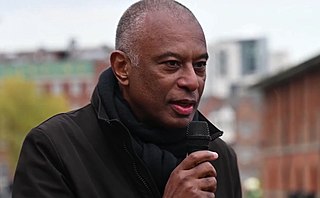A Quote by Billy Collins
I'm very aware of the presence of a reader, and that probably is a reaction against a lot of poems that I do read which seem oblivious to my presence as a reader.
Related Quotes
I sometimes ask people, 'Can you be aware of your own presence? Not the thoughts that you're having, not the emotions that you're having, but the very presence of your very being?' You become aware of your own presence by sensing the entire energy field in your body that is alive. And that is the totality of your presence.
Simply put, meta-writing is writing that is self-conscious, self-reflective, and aware of itself as an artifice. The writer is aware she's writing, and she's aware there's a reader, which goes all the way back to Montaigne's often-used address "dear reader," or his brief introduction to Essais: "To the Reader." It can be done in a myriad of ways.
As soon as I start to write I'm very aware, I'm trying to be aware that a reader just might well pick up this poem, a stranger. So when I'm writing - and I think that this is important for all writers - I'm trying to be a writer and a reader back and forth. I write two lines or three lines. I will immediately stop and turn into a reader instead of a writer, and I'll read those lines as if I had never seen them before and as if I had never written them.
I barely read. I'm not a good reader at all. Rather than reading, I used to sit in front of the TV and watch black-and-white cowboy movies. I'm a painfully slow reader. It's really bad as an actor, because you have to read a lot of scripts. It takes me like an average of three hours to read a script, which is pretty poor.
Even if your novel occurs in an unfamiliar setting in which all the customs and surroundings will seem strange to your reader, it's still better to start with action. The reason for this is simple. If the reader wanted an explanation of milieu, he would read nonfiction. He doesn't want information. He wants a story.
He is no true reader who has not experienced the reproachful fascination of the great shelves of unread books, of the libraries at night of which Borges is the fabulist. He is no reader who has not heard, in his inward ear, the call of the hundreds of thousands, of the millions of volumes which stand in the stacks of the British Library asking to be read. For there is in each book a gamble against oblivion, a wager against silence, which can be won only when the book is opened again (but in contrast to man, the book can wait centuries for the hazard of resurrection.)
We must be forewarned that only rarely does a text easily lend itself to the reader's curiosity... the reading of a text is a transaction between the reader and the text, which mediates the encounter between the reader and writer. It is a composition between the reader and the writer in which the reader "rewrites" the text making a determined effort not to betray the author's spirit.
The most difficult part of writing a book is not devising a plot which will captivate the reader. It's not developing characters the reader will have strong feelings for or against. It is not finding a setting which will take the reader to a place he or she as never been. It is not the research, whether in fiction or non-fiction. The most difficult task facing a writer is to find the voice in which to tell the story.






































